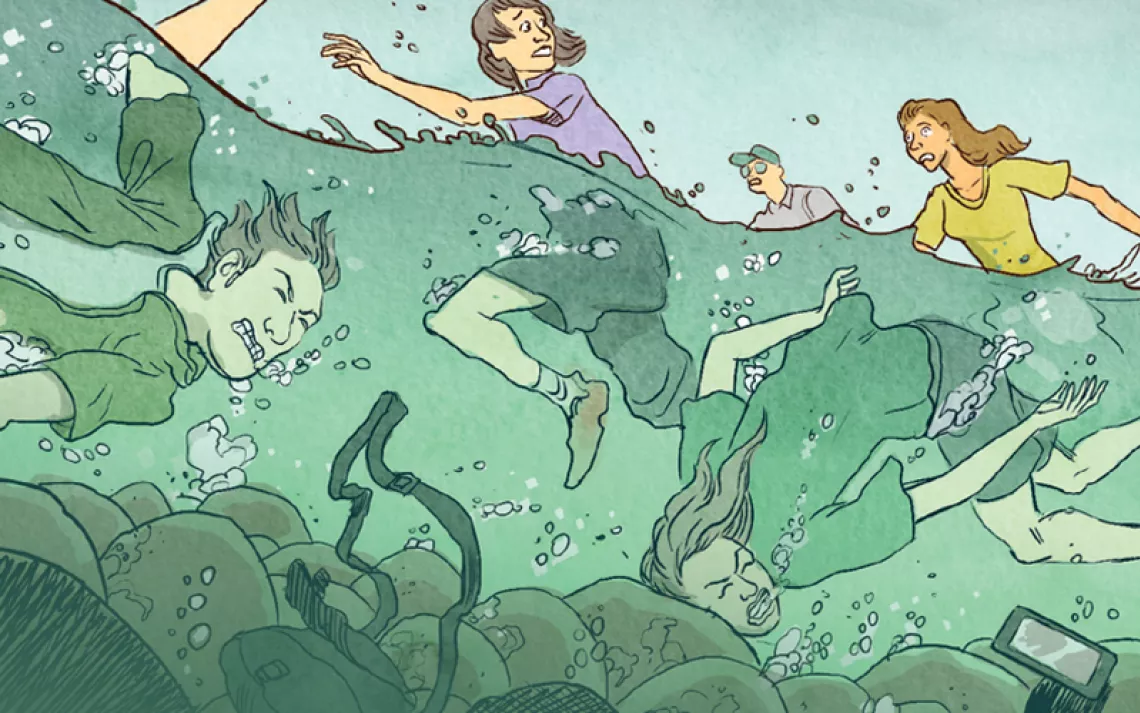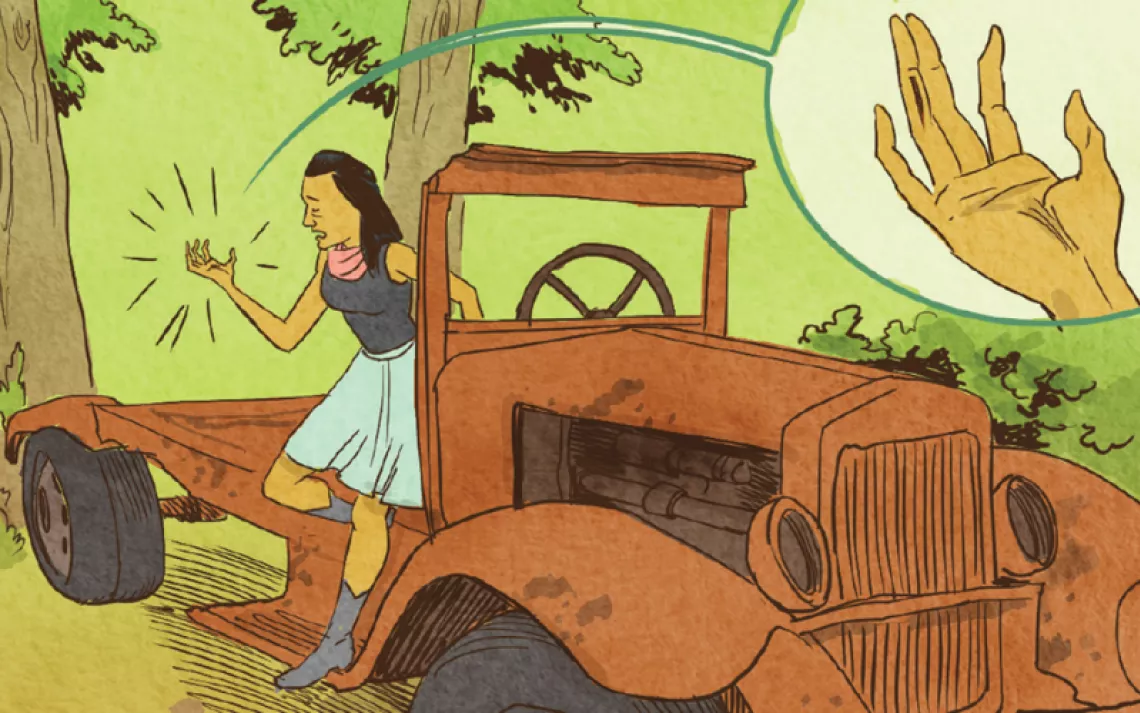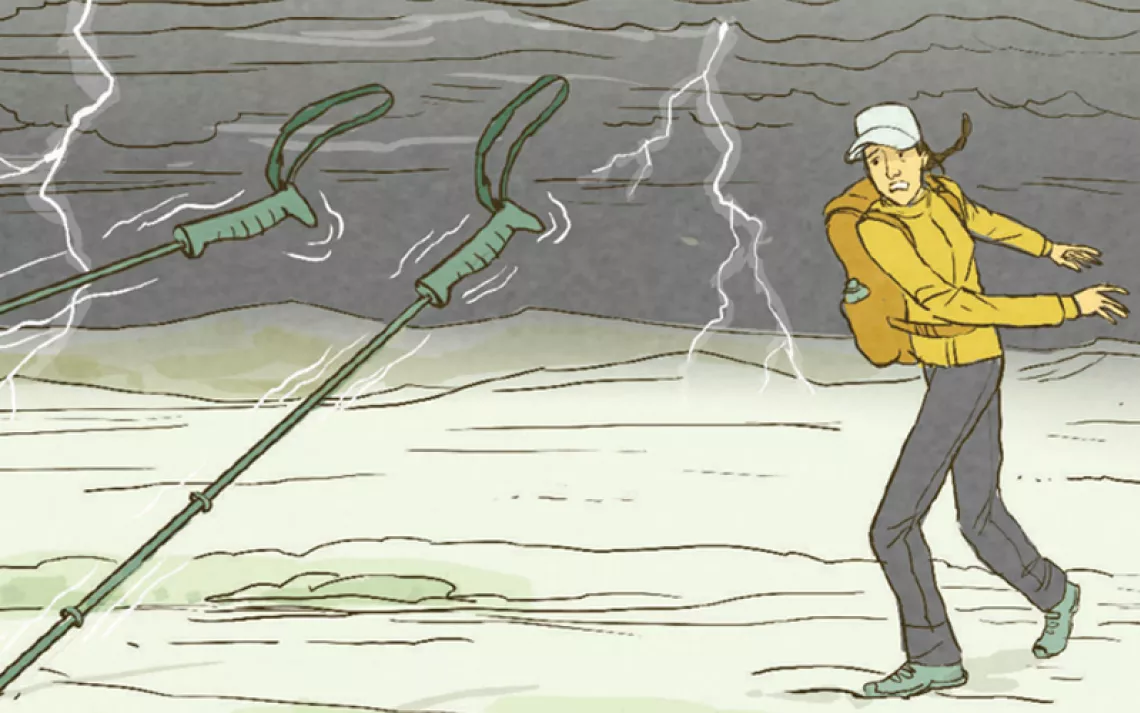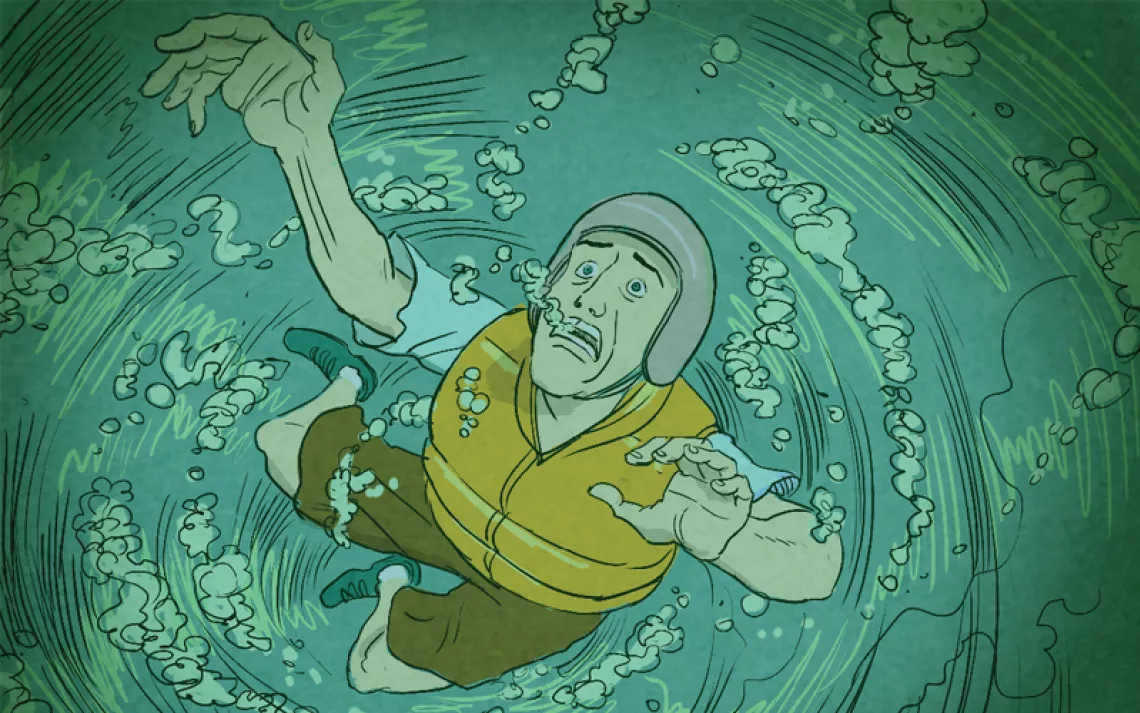A Poorwill's Warning
A man has a heart attack in the desert. What happens next?
My half-Mexican, half-German grandmother used to tell me that if a common poorwill calls out in the desert, someone is going to die. It never worried me—until I heard one as I was hiking out of the Guadalupe Mountains in New Mexico, trying to reach the ambulance.
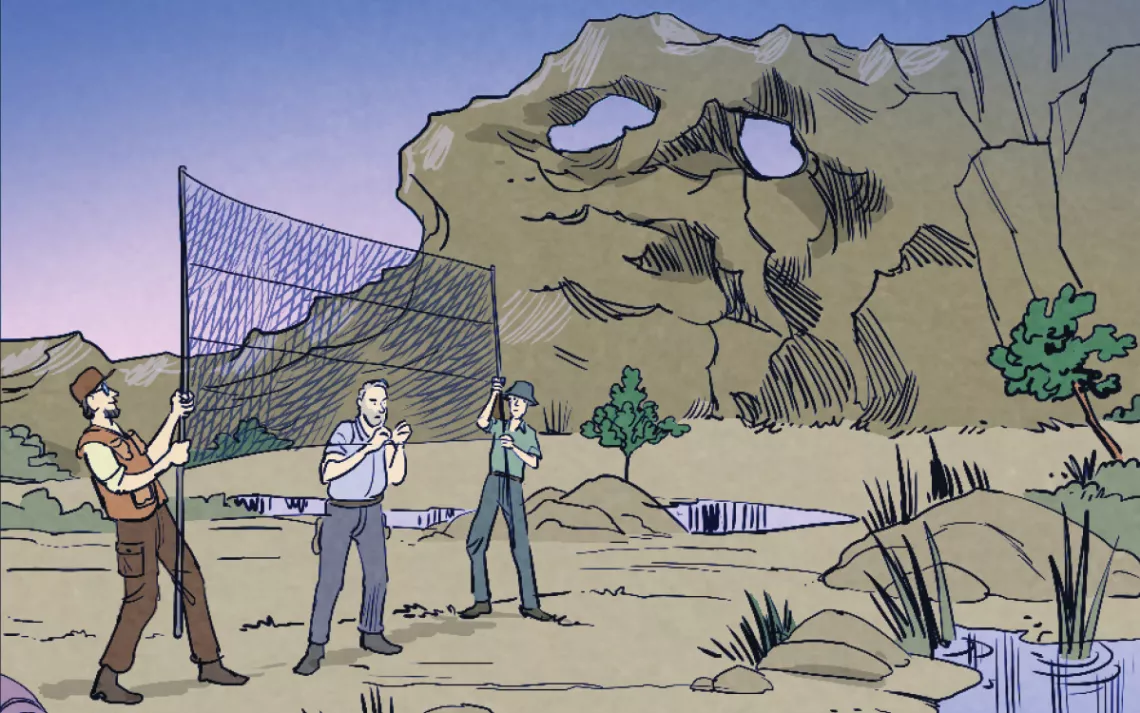
My friends and I volunteer to band birds. In June 2018, we hiked up Last Chance Canyon, west of Carlsbad. We wanted to get to the arch before dark and set up our mist nets.
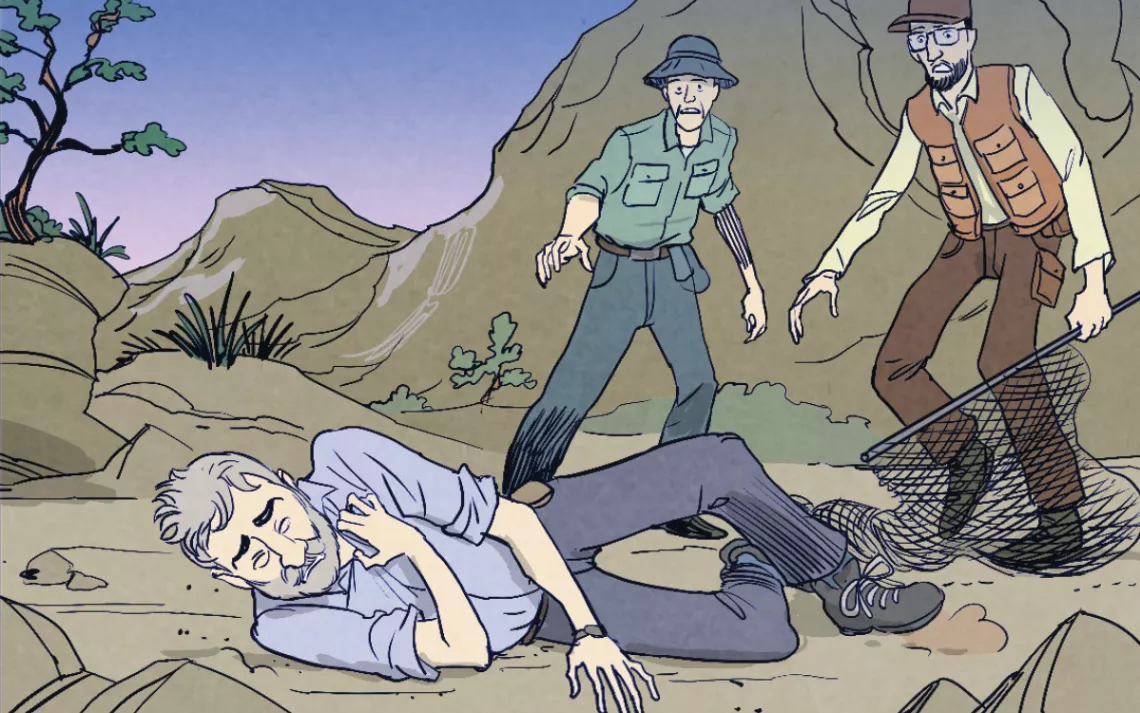
Our goal was to band elf owls. As night was falling, we started setting up. As I leaned down to pick up a net, I felt a sudden pain in my chest. I thought it would pass, but I lay in the dirt and it hurt more. I was having a heart attack.
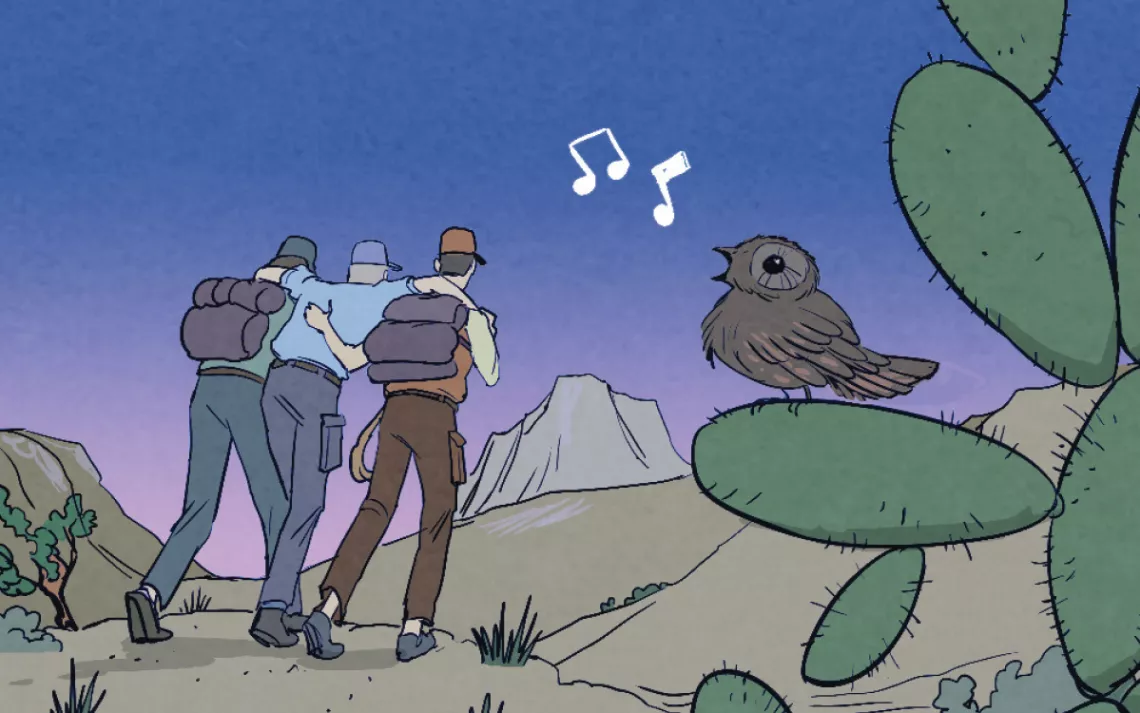
My friends walked me back to the car, a mile and a half away. There were a couple of hills, and I tried to pace myself. There didn't seem to be any other option.
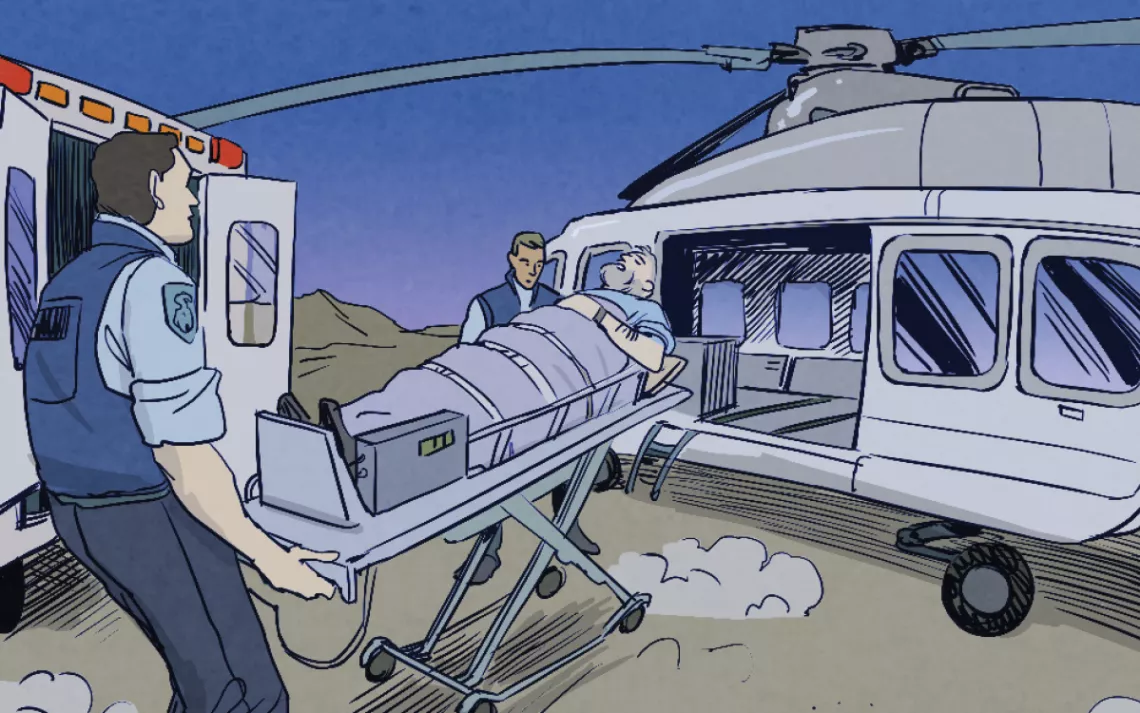
An ambulance was waiting, and it took me to a helicopter that flew me to a hospital in Carlsbad. My coronary artery was 96 percent blocked. No more pork rinds for me!
This article appeared in the January/February edition with the headline "A Poorwill's Warning."
Ask the Expert
"Every year, more than 800,000 Americans experience a heart attack. Steve was fortunate, given that a portion of those heart attacks are fatal, usually presenting as sudden cardiac arrest. Expedited and effective cardiopulmonary resuscitation can save thousands of lives yearly. Have you learned CPR yet?"
Dr. Jorge Brenes Salazar is a cardiologist, geriatrician, and internist at the Mayo Clinic.
 The Magazine of The Sierra Club
The Magazine of The Sierra Club
